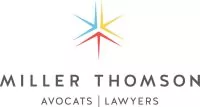On September 14, 2021, the Ontario Provincial Government released O. Reg. 645/21: Rules for Areas at Step 3 and at the Roadmap Exit Step (the "Regulations") pertaining to mandatory vaccinations. Many in the condominium industry are asking whether the Regulations apply to common element areas in condominiums.
The media previously reported that a representative of the Ministry of Health stated that the Regulations will not apply to condominium corporations, as they are not "public settings or facilities." The Regulations impose the obligation to provide proof of vaccination only for "patrons" entering a premises. In comparison, the mask requirement imposed by the Ontario Provincial Government applies to "any person" on the premises.
The Regulations also set out requirements for "a business or an organization." Those requirements include proof of vaccination for the following "areas of a premises:"
- meeting and event spaces;
- indoor sports and recreational fitness facilities; and
- indoor pools and other water features.
At this point in time, while there are some arguments that suggest the Regulations could apply in our view they do not. It seems more than likely that the intent of the Regulations is that they do not apply to condominium corporations considering the statements made by the representative of the Ministry of Health.
On one hand, there are no explicit exemptions for condominium corporation and a condominium could be characterized as an "organization." On the other hand, there is an argument that a condominium is not a public place (and there is the previous statements made by a representative of the Ministry of Health that suggest the mandatory vaccination program may not apply to condominium corporations). Further, it is questionable whether owners, tenants and guests would be considered "patrons" in accordance with the Regulations.
If the Regulations do not include condominium corporations, the question remains whether condominium corporations have the authority to pass rules or a policy to require proof of vaccination to use particular indoor amenities and for employees and contractors. Rules requiring proof of vaccination would likely be enforceable, but in our view passing a policy would also be sufficient.
It is important to remember that condominium corporations are obligated to comply with the following relevant provisions of the Condominium Act, 1998 (the "Act"):
- To manage the property in accordance with section 17;
- To ensure that there are no conditions or activities on the property that could cause injury to an individual in accordance with section 117.
In addition, in accordance with section 26 of the Act, a corporation is deemed to be the occupier of the common elements (meaning that it is liable for any injuries or damages that occur on the common elements).
In normal course, policies are not enforceable against unit owners. However, there have been two cases during the pandemic where a court enforced the provisions of a condominium corporation's policy (being the mask policy in Halton Condominium Corp. No. 77 v. Mitrovic, 2021 ONSC 2071 ("Mitrovic"), and the repairs and renovation policy in Toronto Standard Condominium Corporation No. 1704 v. Fraser, 2020 ONSC 5430 ("Fraser").
In Mitrovic, the Court held that the owners would only be permitted not to wear their masks in the event they go to and from their unit (in a direct manner). As a result, if the unit owners wished to attend other floors, then they were required to wear a mask.
In Fraser, the condominium corporations passed a COVID-19 policy which prohibited in-suite renovations and repairs during the height of the pandemic. A unit owner proceeded to do work irrespective of the policy and the condominium corporations commenced a court application to enforce compliance. The Court found that the policy was valid and enforceable and cited section 117 of the Act, which prohibits conditions or activities likely to cause injury, as the authority to pass this type of policy. The Court went on to say that such a policy is "well within the range of reasonable responses to a global pandemic."
Assuming the Regulations do not apply to condominium corporations, there are risks associated with a mandatory vaccination policy. However, the decisions Mitrovic and Fraser (when read in conjunction with sections 17, 26 and 117 of the Act) likely provide condominium corporations with the authority to create a mandatory vaccination policy.
In order to increase the chances that a condominium corporation's mandatory vaccination policy will be enforceable, care should be taken when drafting the policy to ensure that it:
- Only applies to non-essential common element areas, such as gyms, pools and party rooms;
- Provides owners with an opportunity to get vaccinated before it comes into force;
- Provides age-based exemptions and accommodates those who cannot be vaccinated;
- Is temporary in nature; and
- That the corporation does not retain any health information provided to establish that vaccination requirements have been met.
The content of this article is intended to provide a general guide to the subject matter. Specialist advice should be sought about your specific circumstances.

